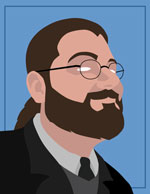 Earlier this week, Gizmodo delivered its report on Starbucks To Provide In-Store CD Burning, and wrapped it up with the question, “Does this interest anyone at all, or have services like iTunes and Rhapsody leap-frogged the need for in-store CD burning?”
Earlier this week, Gizmodo delivered its report on Starbucks To Provide In-Store CD Burning, and wrapped it up with the question, “Does this interest anyone at all, or have services like iTunes and Rhapsody leap-frogged the need for in-store CD burning?”
Since Gizmodo has moronically disallowed any commenting, I will respond here. My answer is a resounding yes.
While I was in Seattle with Jenny last year two years ago (jeez!), I stopped in this fantastic Starbucks just down the street from our hotel. It was huge, filled with neat art and nice architectural flourishes (not just the out-of-the-box artwork that you find on every Starbucks in the universe), and, now here’s the kicker, a big kiosk that told you what was currently being piped over the store speakers. You’d be working away, and they’d play something nice and jazzy and cool, and you could look up and take note of the artist and the title of the song.
Now, the snootier among us may take issue with using Starbucks as a filter for new music, but I think Starbucks’ Hear Music CDs are fantastic. I’ve found quite a few new favorite groups by picking up those CDs, and they make excellent road trip mixes. (This cool-friend role has since been ceded to Paste Magazine, but that’s neither here nor there.)
Picture this. I’m sitting in Starbucks, working on my laptop and using their T-Mobile wireless network. (It happens.) Something comes over the speakers and I really dig it. I fire up iTunes or whatever their little web client is to find out who the artist is, then either 1-click the song or pop over to iTunes to look it up. This could be great. Now, according to Gizmodo they’re talking about only doing the CD burning thing, which I think is a trifle shortsighted, but if this allows for the same kind of functionality as the Starbucks in Seattle (which I suspect might have been an alpha test kiosk or something), then I’m all for it.
Brief aside: what does gall me here lately is Starbucks’ sponsoring of independent film. I don’t know why, exactly, but there’s just something so anti-indie about Starbucks that their insinuations that these two things fit so perfectly together is just nauseating. Note to Howard Schultz: there’s nothing indie about Starbucks. That’s okay. I’m fine with having you cater to the artsy and the techno and the stylish and the foreign-film art house market and so on and so forth. But indie? Nahhhh. When I hear “indie”, I think of something way more urban than Starbucks. I think of places like Common Grounds in Arlington, or little record shops like the one John Cusack owned in High Fidelity. Likening Starbucks to indie film is like trying to link Best Buy to the latest indie music. It just doesn’t click.
Of course, any ad campaign attempting to link Starbucks to Merchant Ivory films would be equally laughable, so I guess what they’ve done isn’t that bad.

Storyteller, scholar, consultant. Loving son, husband and father. Kindhearted mischief-maker.
I'm the Director of the Games and Simulation program at Miami University in Ohio, where I am also an Assistant Professor in the College of Creative Arts' Emerging Technology in Business and Design department. I'm also the director of Miami's Worldbuilding and Narrative Design Research Laboratory (WNDRLab). I have a Master's in Comparative Media Studies from MIT and a PhD in Media Arts and Practices from the University of Southern California.
In past lives I've been the lead Narrative Producer for Microsoft Studios and cofounder of its Narrative Design team, working on projects like Hololens, Quantum Break and new IP incubation; in a "future of media" think tank for Microsoft's CXO/CTO and its Chief Software Architect; the Creative Director for the University of Southern California's World Building Media Lab and the Technical Director, Creative Director and a Research Fellow for USC's Annenberg Innovation Lab; a Visiting Assistant Professor at Whittier College and director of its Whittier Other Worlds Laboratory (WOWLab); the Communications Director and a researcher for the Singapore-MIT GAMBIT Game Lab; a founding member of the Convergence Culture Consortium at MIT (now The Futures of Entertainment); a magazine editor; and a award-winning short film producer. more »
The opinions put forward in this blog are mine alone, and do not reflect the opinions of my employers.

